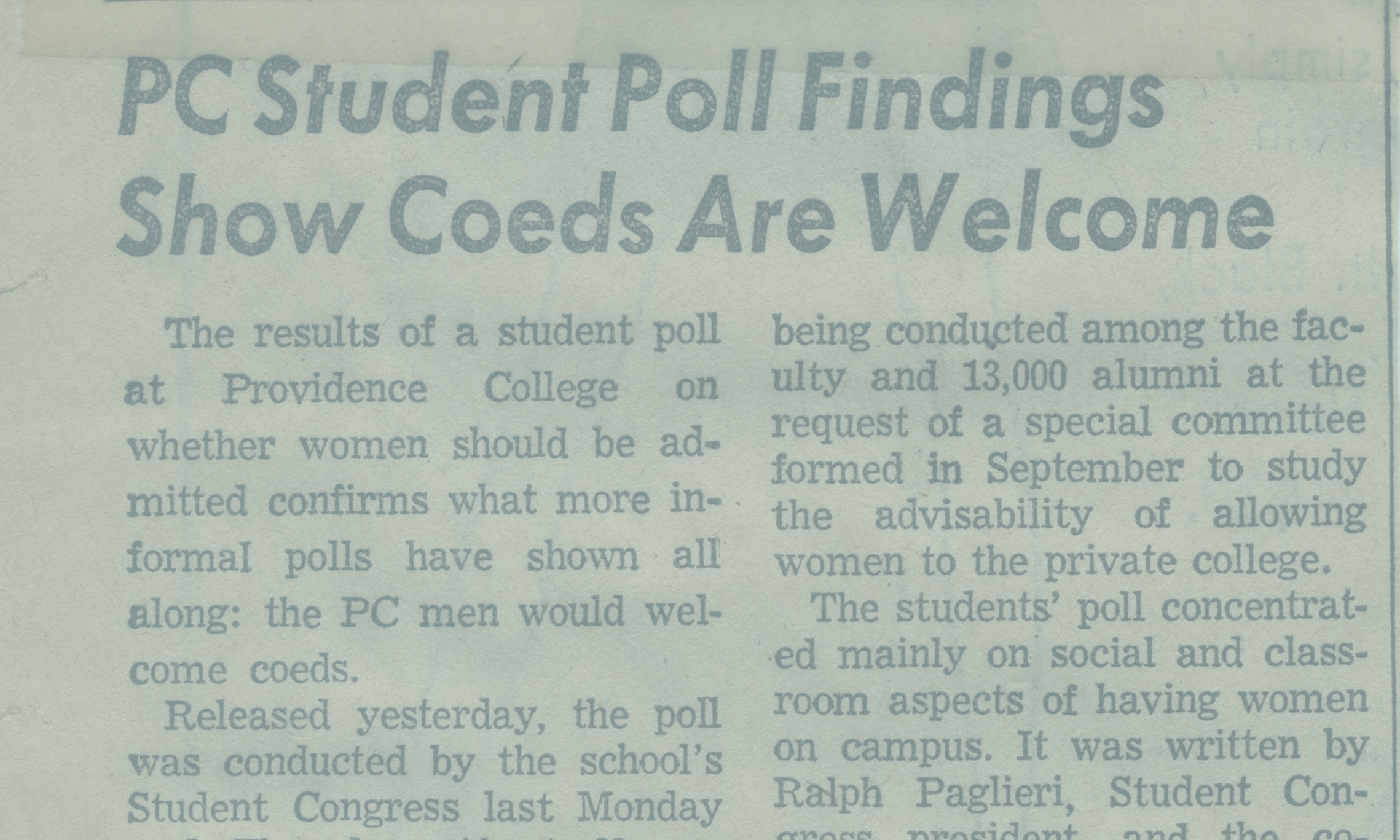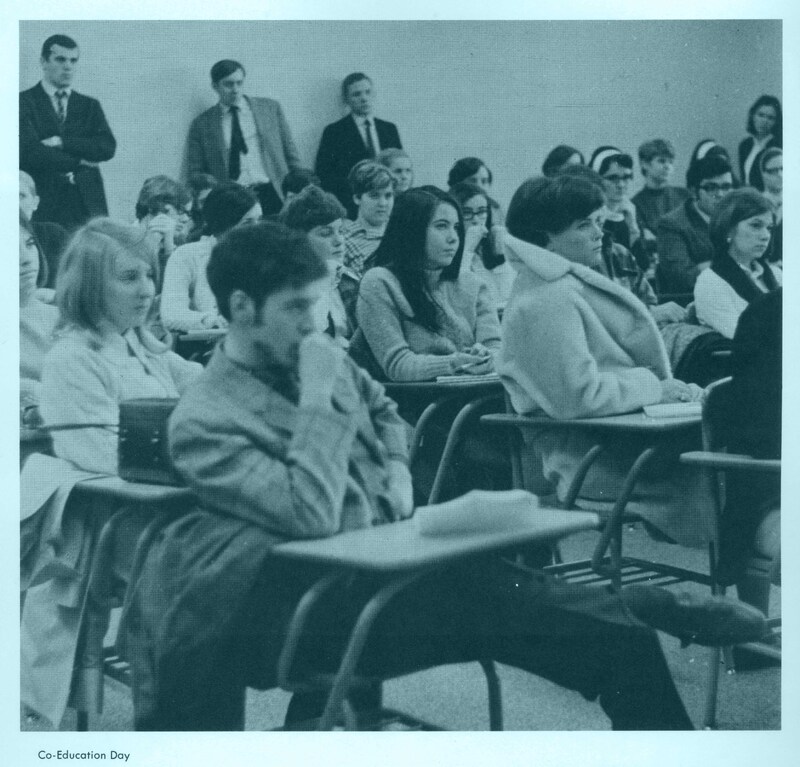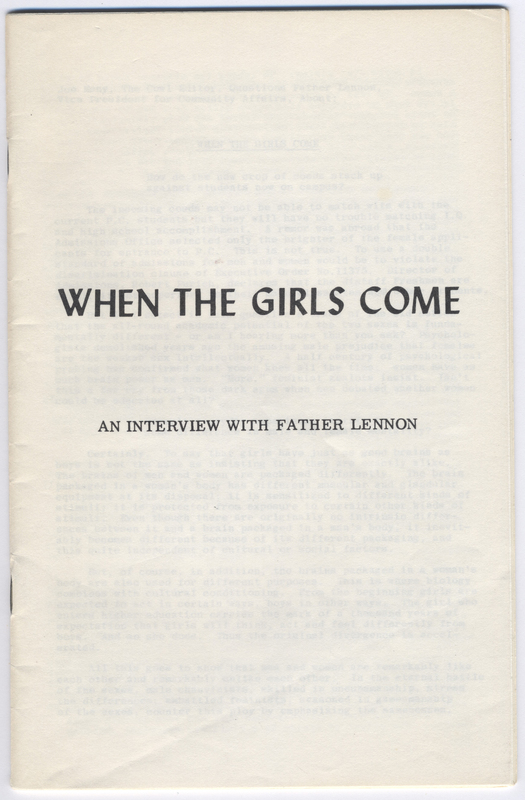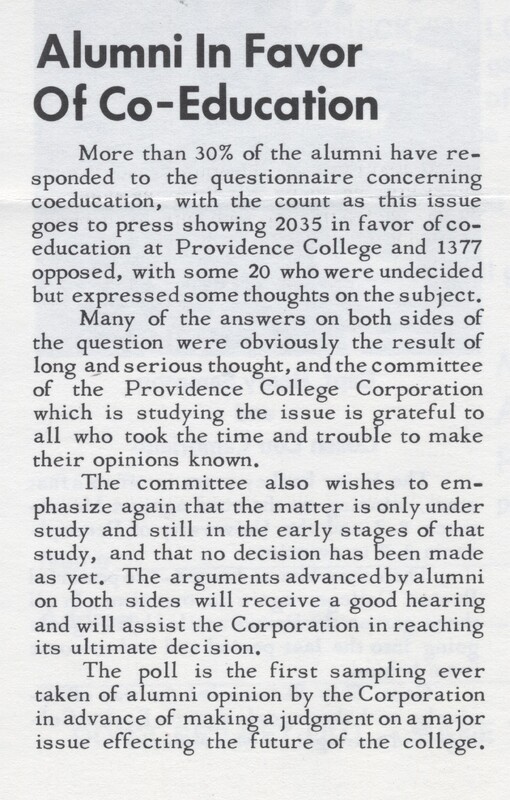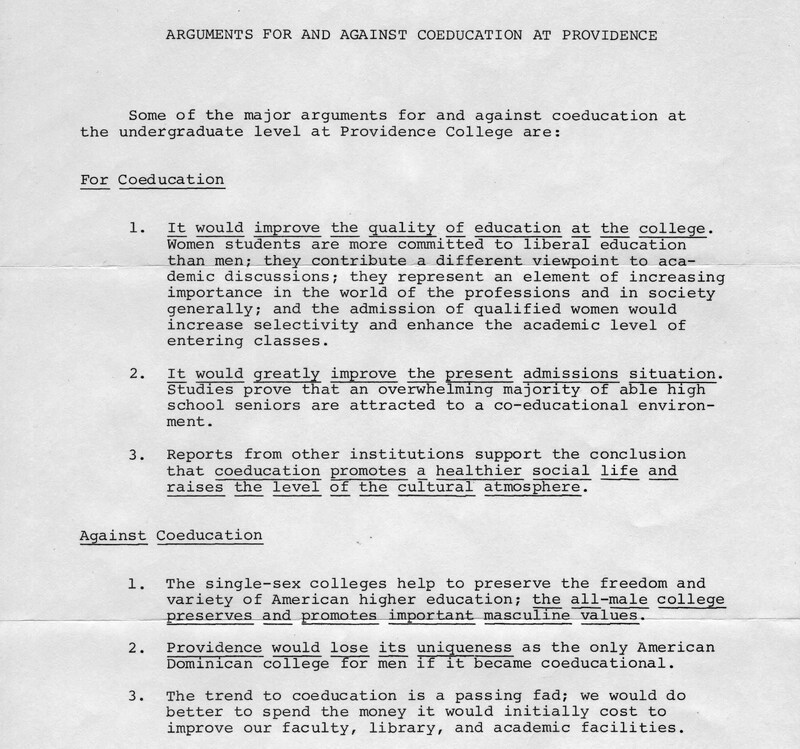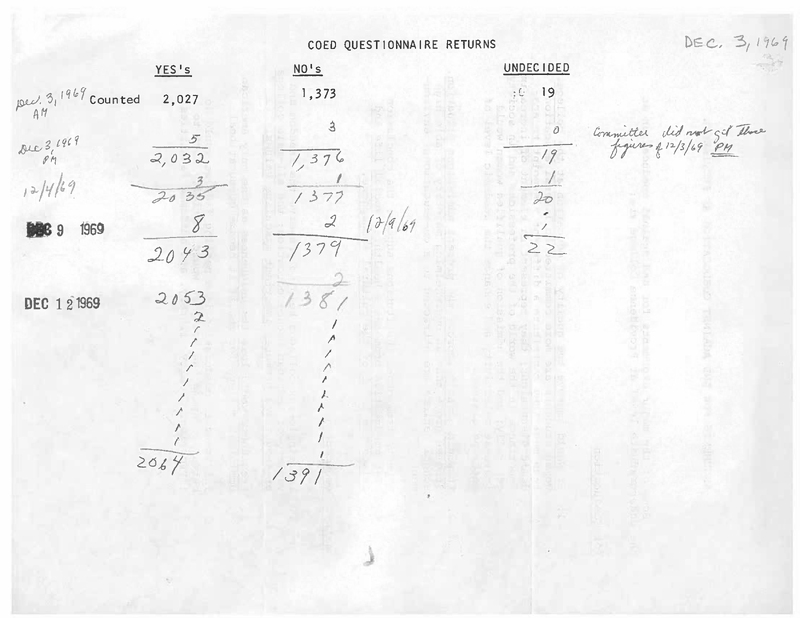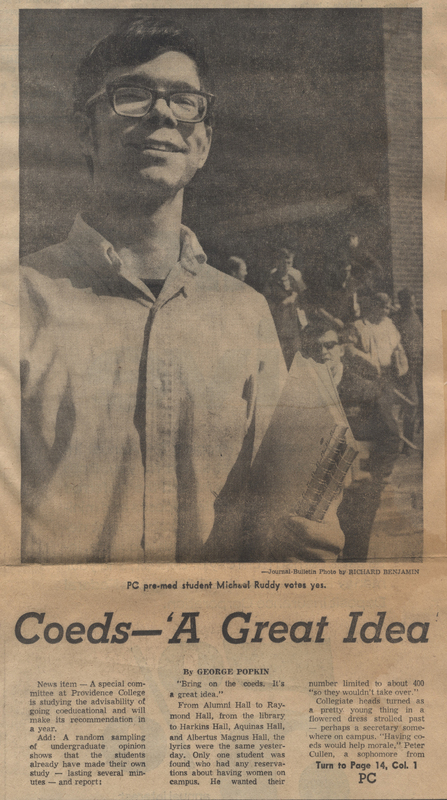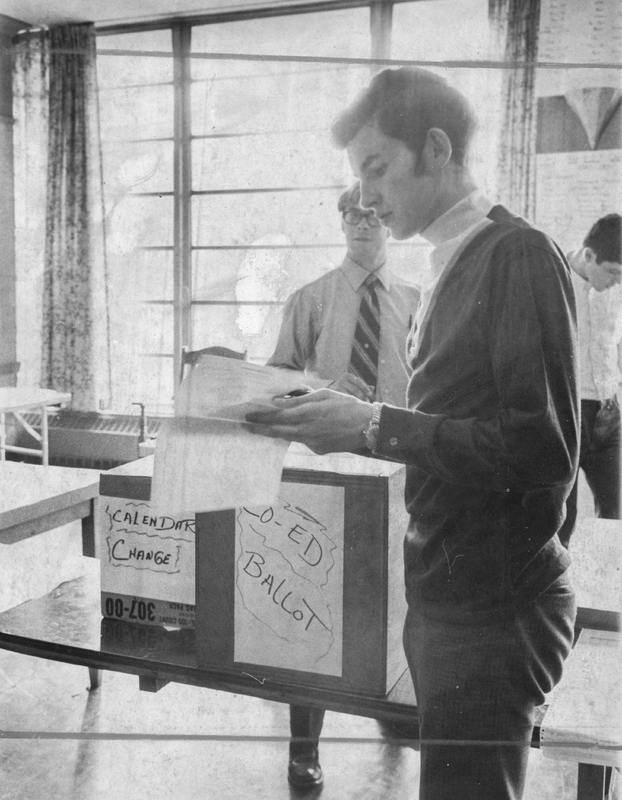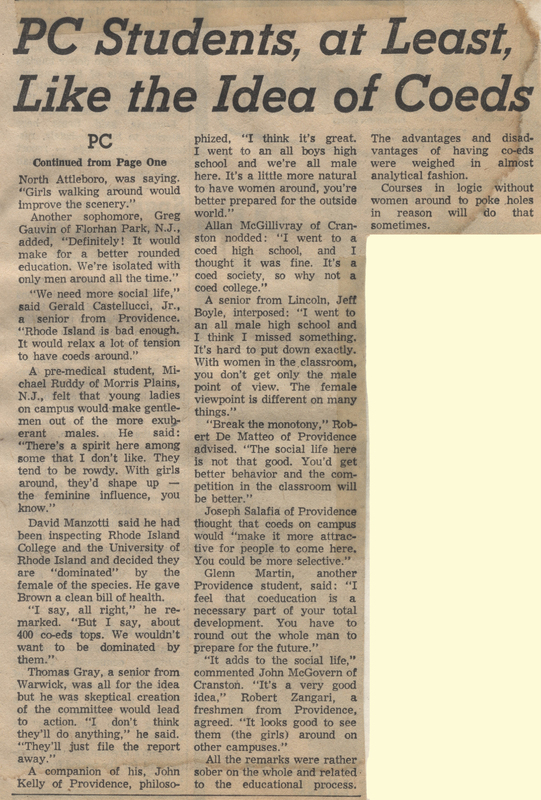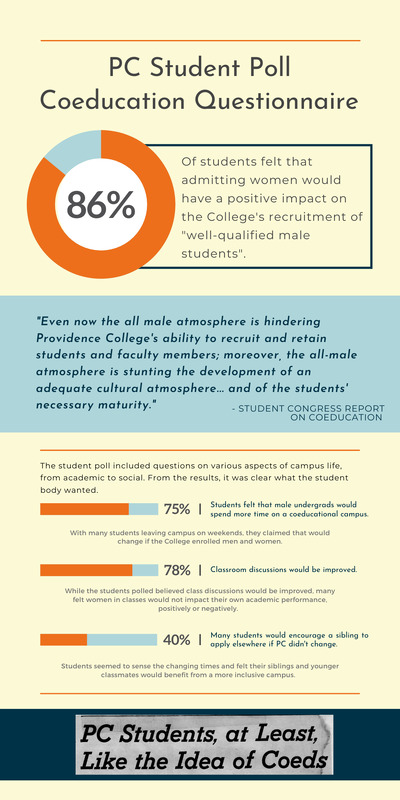Before Coeducation
Prior to 1971, issues related to coeducation came up many times. From the rules governing dorm visitations, known as parietals, to planning social events with both coeducational and women’s only schools, the logistics around these became part of the discussion as Providence College considered coeducation.
Students argued for more freedoms on campus, including relaxing parietals, the rules that governed dorm visitations by the opposite sex. Compromises were attempted by expanding visitation times and creating more spaces for visits, but it wasn’t enough.
In Fall of 1968, Student Congress introduced a parietals bill to allow women visitors in dormitory rooms on weekends. Administration was hesitant and opposed to discussions. In February 1969, a new compromise was introduced, the Open House policy.
The Open House policy:
- Doors are to be opened wide enough to permit a person to enter.
- A student entertaining a young lady in his room must register her by name and check out on a special guest list which will be placed on the door of the student prefect responsible for proper decorum for Open House.
- She must be at least seventeen years old.
- Open House is effective in all residence halls from 1:30 to 6 p.m.
- Young lady visitors, except relatives, must be escorted to and from the area they are visiting.
Committee Work
These tensions and trials contributed to the formation of the Committee to Study the Feasibility of Coeducation in 1969. This committee brought together faculty and administrators to explore the various benefits and potential pitfalls of coeducation.
Faculty Input
Though not the prevailing opinion of most faculty, the views of Rev. Joseph Luke Lennon '40, '61 Hon. entered the coeducation discussion with intensity. The College quickly released statements to counter the unofficial pamphlet, assuring the community that the coeducation question was under fair and thorough evaluation. Fr. Lennon eventually changed his views regarding women on campus.
"... women do not, or cannot, or do not want to innovate. They seldom start new projects. Converse, supports, keep in good order and running condition - yes, this they do well. But don't expect them to be creative, original, daring, or initiators of new movements."
- Father Lennon
Alumni Answer
Over 3400 alumni responded to a survey seeking their opinion on coeducation. While not as heavily tipped to favorable as the student poll, the majority of respondents were in favor of coeducation.
"As far as masculine values are concerned, send me a list will you, I must have lost mine... It seems obvious that coeducation at Providence College could do much to enhance the prestige of the college while at the same time be educating both scholastically and spiritually the future women of this country"
- Class of 1960
"Never has there been a society so enamored of change for the sake of change."
- Class of 1955
"Since the current trend is to coeducation, Providence College can maintain a unique place... There are many all-female colleges in the vicinity to provide a social diversion."
- Class of 1957
"I see no real value attached to a totally male-oriented institution besides that of perpetuating a false sense of male superiority."
- Class of 1959
Students in Favor
Providence College Student Congress conducted their own survey and published a report showing the trend toward coeducation and the overwhelmingly positive student opinion.
On June 2, 1970, the Providence College Corporation voted 19 in favor and 3 opposed to adopt the recommendations of the Committee to Study the Feasibility of Coeducation. This gave the College just over 14 months to prepare for the first coeducational class at Providence College.
Item Set: Making the Decision--items
Next: Welcoming Change

